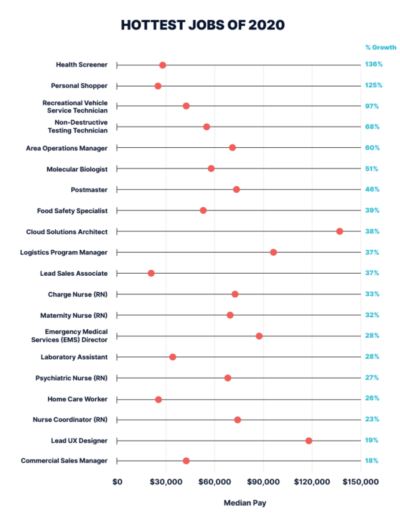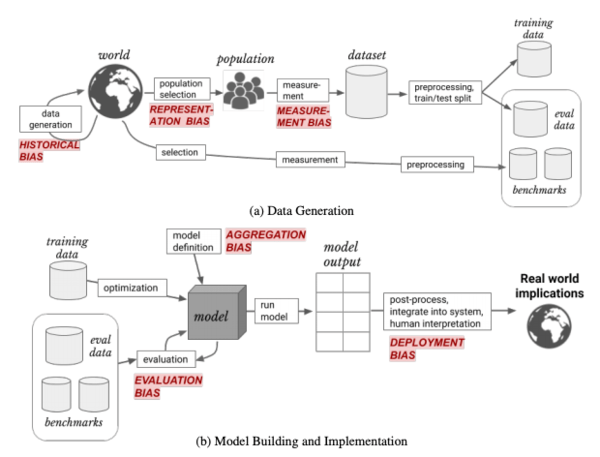The ethics of such (AI) systems will most definitely be a hot topic this year.
a two-part report summarizing some of the biggest trends during 2020 and the beginning of 2021. For the first part, check the geopolitical trends.
Origen: Post-pandemic Technology Trends: What to Watch – The Aleph Report
EXCERPTS
a brief analysis of some of the most prominent technology trends that have been either developing or evolving during last year and into 2021.
Proptech maturity
many second-generation proptech startups are rising to the top.
Digitalization isn’t just replacing brick and mortar processes; it’s also spreading horizontally, making many current operations obsolete. …It’s also accelerating IoT trends and Perception AI’s deployment.
Consolidation of food delivery
…Many restaurants are closing for good, while many others are struggling to offer delivery options. Once a business adds a delivery option, it rarely goes away, so expect many surviving companies to become hybrid.
The growth of ghost or cloud kitchens has accelerated, as well as the crop of startups (and funding) providing automation for them. Time will say how many of them will survive a post-vaccination era or if the quality of the “automated” food is a match for the old school.
However, the disruption has propagated down the supply chain. …synthetic food or agrotech.
Energy race towards fusion
…Our energetic needs keep increasing (exponential computational needs, electrification, agrotech needs, etc.). A functional fusion reactor could unlock incredible strategic value for any nation. …several startups including US and UK ones, are on the verge (3-5 years) to have a functional reactor.
If this becomes real, it could have dramatic geopolitical consequences for the middle east.

Shopify vs. Amazon
Another big story of the year has been the meteoric growth of Shopify. From e-commerce platform to alleged Amazon contender. The differences between both companies are stark, but it seems Shopify is reluctantly moving towards Amazon’s turf (and vice versa). Shopify expanded into fulfillment, integrating the lower part of the value chain.
They want to become the operative system (OS) for e-commerce, and owning the fulfillment piece is critical.
mRNA revolution
…Such rapid and global use has accelerated, by a significant factor, the technology’s readiness and acceptance.
…reassuring numbers will increase its respectability within regulators, potentially fast-forwarding mRNA use in other treatments like cancer, flu, autoimmune diseases, or even Alzheimer’s.
Logistic nightmares
As more people turn to home delivery for everything, the already strained postal service is getting worse—delays, mistakes, increased taxes, etc. An increasing number of companies are redesigning their logistic operations to achieve deliveries within the magic 42h window (thanks Amazon).
This year I expect an increasing number of experts helping create Smart Warehouses. …warehouses require essential data infrastructures and a digitalization plan to achieve operational improvements.
This acceleration is also forcing …there is an explosion of companies providing “Fulfilment as a Service.“ …some are adventuring and pushing for autonomous last-mile vehicles.
SpaceX menace
…is SpaceX’s Starlink network’s deployment. I can’t stress how disruptive Starlink is. Telco companies should be terrified as it will eventually provide affordable internet access with a global footprint. Worse of all (for incumbents) is that the competitive moat is massive.
Another angle of Starlink is the potential capacity to circumvent local or statewide Internet censorship (i.e., China, Hong Kong, India, Iran, etc.). Will nations develop satellite jammers to prevent this from happening? … It’s still early to say, but the current geopolitical turmoil makes it a very enticing option.
Blockchain and crypto speculation
…lockdowns, limited or restricted outdoor entertainment, and accessible trading tools have created the perfect speculative storm for trading floors and the crypto markets. … speculators aside, blockchain technology is having a moment as a tool to deploy transparent and trustworthy pandemic related apps.…the need to provide “proof” of something in a distributed and secure fashion (i.e., different countries) is where blockchain might excel.
The increasing use of specific blockchains will also drive the price of individual virtual tokens, so don’t expect speculation to end anytime soon.
Education disruption
…With attention rates dangerously low, and unequal access to remote learning tools, it’s easier said than done. Online education lowers the friction of attendance, but it also makes it very easy to zoom out if the professor or the topic isn’t engaging, creating “Zoom fatigue“.
Effective online education requires more than a simple videoconferencing tool. As we move forward into the year, I’m guessing we will experience a specialization of several of these new online education services.
Another side of this disruption is the sudden demand for digital transformation experts. … We need to redesign, optimize, and automate all kinds of operations.
These changes require not just tools but industry-specific know-how, data science, and data management skills. …Education ventures are already moving in that direction, but there is plenty of opportunities to train people in vertical digital transformation tracks (i.e., Restaurant digital transformation expert).
Artificial Intelligence, data, ethics, and bias
…a vertical that has thrived during the pandemic, that has been AI-powered startups. Intelligent automation and optimization of processes are essential to survive the economic downturn.
Simultaneously, the rage to digitalize previously analog channels is creating even more data for our AI algorithms. …such systems’ deployment exacerbates the need for AI ethics and powerful new methods for explainability (XAI). …there is increasing attention to meta-ethics and the development of core moral structures that undergird new systems.
…Employees are worried that their projects will have a dual-use (civilian and military),
while users are afraid the AIs are manipulating them.
Activists are fearful that AIs can silence them;
governments are nervous that AI companies have more sway with the population.
And deeply tied with the last point is the expansion of algorithmic bias, or let’s say, the amplification of human bias through AI. While many western societies don’t see bias as an issue, the truth is that adding exponential scale to it through AI will only increase the current erosion of the social fabric.
Final words
2020 has been a rocky year for many reasons, and there are no reasons to believe 2021 won’t be as disruptive. And while some fields of tech have benefited dramatically, others have been hit hard.
We’re entering a very volatile year, and it’s more important than ever to plan for high uncertainty scenarios. The world will keep spinning, but many of the rules of engagement are changing fast.

